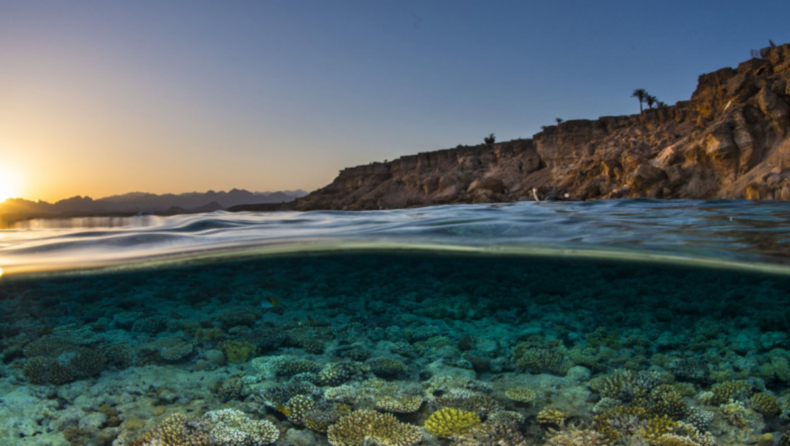The Outstanding Exhibition, Technology, and Illegal, Unreported, and Unregulated Fishing event will focus on practical science-based activities and will be implemented with new tools and technologies, which can be taken to protect a healthy, prosperous and vibrant ocean.
The 75-minute event will launch the IUU Action Alliance; a new Joint Analytical Cell (JAC) profile, which provides authorities with fishing information, data analysis, and capacity building; announces a donation from the Canadian space technology company MDA for a space-based space observation program based on the international community in support of the UN Sustainable Development Goals, and showcase state-of-the-art transparency and technology-based programs by participants.
The session will provide three clear steps all nations can take to follow:
- Join the IUU Action Alliance.
- Engage with and support the JAC.
- Access the global space-based earth observation data archive.
Blue transformation
The third day of the Summit, which highlights the state of the global fishing industry and the resilience of aquaculture, marked the launch of the United Nations Food and Agriculture Organization report.
The growing demand for fish and other seafood is rapidly changing the entire sector, as consumption is expected to increase, largely driven by rapid population growth, changes in post-harvest harvesting practices, and food-focused diets. health and nutrition.
Is sustainability at sea realistic?
According to the FAO, created in 1945 to end hunger, the need, and how to meet the needs of 10 billion people as the population grows, they suppress food systems, at the same time as climate change, COVID-19, environmental degradation, and conflict are testing them.
The State Report for World Fisheries and Aquaculture (SOFIA) analyses the global stock status and fishing trends, as well as aquaculture, including the regional level.
Focusing on the ‘Green Transformation’, a visionary strategy designed to improve the capacity of underwater food systems and sustain the world’s growing population, SOFIA serves as a key reference for governments, policymakers, academics, and others in the sector.
‘Green Transformation’ in the way we can produce, regulate, trade, and consume seafood, in order to achieve the UN Sustainable Development Goals or SDGs, says FAO.
As the sector continues to grow, FAO says more targeted changes are needed to achieve a more sustainable, inclusive, equitable fishing and aquaculture sector and to combat the growing threat of food insecurity.
Speaking to the media, Manuel Barange, Director of FAO’s Fisheries and Aquaculture, emphasized that it was the first time that an important report had been submitted outside the FAO headquarters in Rome.
Record High
According to the FAO, growth in aquaculture, especially in Asia, has increased production in the sector to over 214 million tons by 2020, which includes 178 million tons of aquatic products and 36 million tons of renewable energy.
Production by 2020 was 30 percent higher than the average in the 2000s and more than 60 percent higher than the 1990 average.
There are real concerns about the price of fish, the price of food in general, but the price of fish, in particular, has grown by 25 percent from December last year, to April this year. [That] puts pressure on the buyer. Mr. Barange told the media.
Food insecurity
With over 800 million people now starving and 2.4 billion people with limited access to adequate food, the challenge of feeding a growing population without depleting current resources continues to grow.
In this context, food systems in the water are becoming increasingly prominent, due to their great ability to meet the growing demand.
‘The growth of the fishing and aquaculture industry is crucial in our efforts to eradicate hunger and malnutrition globally, but the further transformation in this sector is needed to address the challenges. said FAO Director-General, QU Dongyu.
‘We need to change agricultural nutrition systems to ensure that aquatic food is properly harvested, livelihoods are protected, and aquatic habitats and biodiversity are protected. he added.
Nutrition
Significant growth in aquaculture has promoted global fishing and aquaculture production as marine food makes a significant contribution to food security and nutrition in the 21st century.
Speaking at the SDG Media Zone at the Conference in Lisbon, UN Secretary-General of the United Nations Secretary-General Peter Thomson called aquaculture “the healthiest global food to feed our grandchildren and future generations, if we do well.
Read More-
- Investor faith in vehicles financiers will be put to the test
- Five freshly listed stocks are likely to be promoted to large cap and midcap status in the next AMFI size classification.
- With a record $82 billion dealmaking binge in Q2, India defies the global recession
- Maruti Suzuki chooses hybrid vehicles over electric ones in the clean shift
- As the Sebi restriction nears its end, AMCs preparing to introduce new schemes from July













